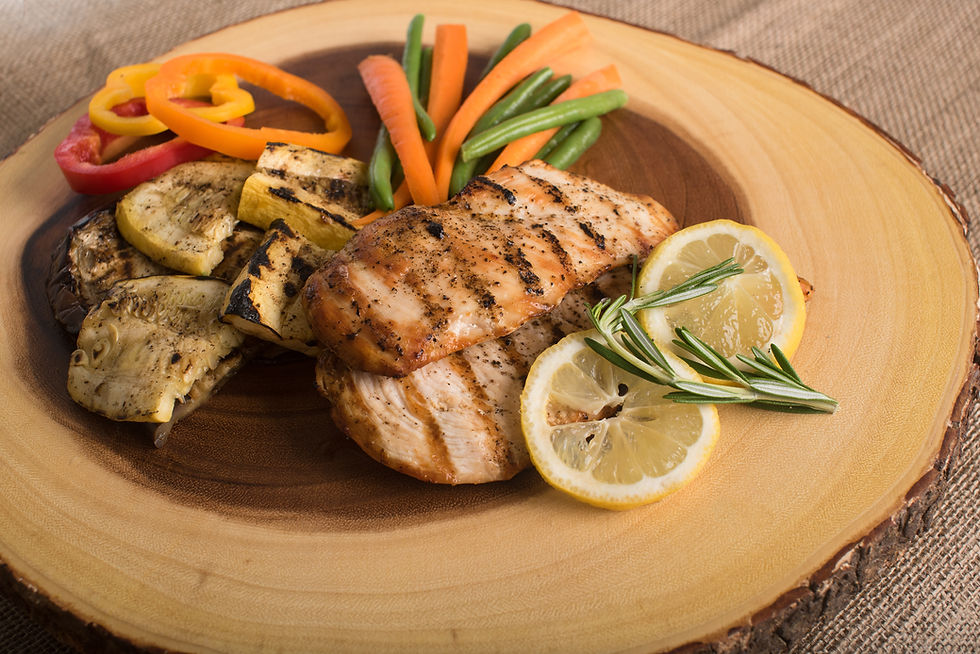Start your 6-month nutrition program today!

I know I spend a considerable amount of time talking about all the benefits of protein, but the one that people tend to latch onto most is how important protein is to muscle growth.
And yes, without protein we would not be able to grow muscle (or much of anything else, for that matter) and get all the amazing benefits we get from holding more skeletal muscle on our frame.
But hey, these 20 amazing amino acids that we collectively call “protein” are responsible for WAY more than giving you nice looking arms and glutes.
What else does protein do?
Immune function
Amino acids are critical for the proper function of our immune system. Several crucial amino acids, including arginine, glutamine and cysteine are precursors to cells and proteins that help identify and fight off foreign invaders. Things like white blood cells and killer T cells require specific amino acids to function properly, while detoxification and antioxidation get a needed boost from protein.
Hemoglobin
Hemoglobin are the red blood cells that transport oxygen around the body. Pretty important, I’d say. Without amino acids like histidine, valine and lysine (among others), our bodies wouldn’t be able to regenerate our hemoglobin supply.
Other amino acids, like lysine and aspartate are responsible for binding oxygen to the hemoglobin, ensuring that oxygen gets delivered to cells around your body.
Enzymes and chemical reactions
Enzymes cause every single chemical reaction in your body, and there are thousands, maybe tens of thousands, of chemical reactions going on in your body.
Enzymes are essentially proteins that react with other molecules to cause an effect, like breaking the bond between glucose molecules, or breaking up starch molecules, or speeding up blood clotting.
Without an adequate supply of amino acids from food, our bodies wouldn’t be able to produce these enzymes that create all these reactions in every single cell of our body. We see the effect of this every day with our country’s epidemic of chronic diseases like high blood pressure, heart disease and Type 2 diabetes.
Hormones
Hormones are our body’s messengers. They send signals between different parts of your body to start or stop a process, based on other biological signals. For example, the hormone leptin tells our brain that we are full and should stop eating. Insulin signals our cells to accept glucose and for our fat cells to grow.
Most, but not all, of our hormones are created using chains of amino acids. Stress hormones like epinephrine and norepinephrine are made of proteins, as well as insulin, glucagon, and many others.
Hormones do quite a lot to keep our body in balance. Without a steady supply of amino acids, we wouldn’t be able to make hormones as efficiently and our health would quickly start to decline.
Balancing blood sugar levels
Protein has a lot to do with how we manage blood sugar. The first, which we’ve covered before, is how muscle becomes a sponge for glucose, providing more space for blood sugar to go. Eating protein at each meal also helps slow the absorption of glucose and blunts the blood sugar response after a meal.
But amino acids can actually have a lot to do with how we produce and respond to insulin. Some amino acids like arginine helps to regulate our pancreas beta cells, which is where insulin is produced.
Other amino acids, like glycine and glutamine, help make our cells more insulin sensitive (that is, respond better to insulin’s signal) while others actually make our cells more insulin resistant.
Clearly, getting enough protein in our diets is about way more than just building muscle. Of course, protein and amino acids are far from the whole story; we also need fatty acids from our diet and most do better with carbohydrates for energy.
Unfortunately, not all protein is created equal. A protein is considered “complete” when it contains all 9 essential amino acids.
Essential proteins are proteins that our bodies cannot make, so we must get them from food.
There are 8 that are “conditionally essential”, which we can make, but it’s easier and more effective to get them from food, and the rest we make fairly efficiently.
While plant foods do contain some amount of amino acids, very few are actually considered complete proteins. So many plant protein sources may be inadequate and could lead to deficiencies.
Protein from animal foods are all complete proteins, and all contain varying amounts of the other 11 amino acids.
It is helpful to get your protein (and other nutrients) from a variety of sources, since different foods contain different levels of nutrients, which is why I suggest a varied omnivorous diet.
But when you’re thinking about WHY you need to get more high quality protein into your diet, I hope you’ll remember these 5 reasons.
How do I get more protein in my diet?
Start your day with 2-3 eggs
Add a piece of fish, tofu or chicken to your lunch salad
Cook up a pound of ground beef or chicken to keep in the fridge for lunch or snacks
Make a half dozen hard boiled eggs to keep for a snack or bring to work
Make a batch of tuna salad for lunch
Cook up a big batch of pasta sauce with your favorite ground meat to put on top of a baked sweet potato or zoodles
Y’all, my goal is to help you conquer stubborn weight, low energy, brain fog, mood swings and low libido. A big part of that is helping you figure out the best way of eating for you.
I’ve got a few spots left in my 6 month 1-on-1 program, and I love to have you join me.
Ready? Let’s go!


Comments